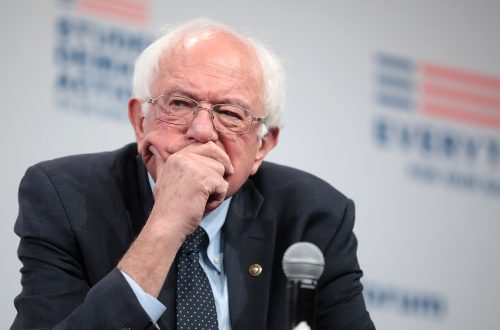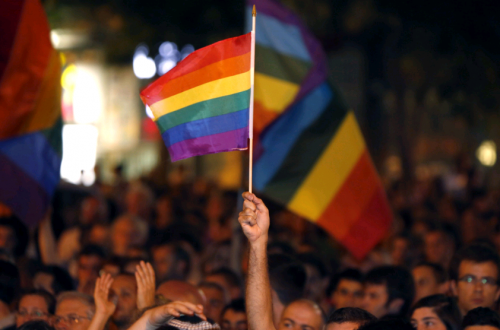This is a cross post from Left Foot Forward by Carl Packman
On Monday, in Toynbee Hall, London, the Centre for Secular Space (CSS) launched its first report authored by Meredith Tax entitled “Double Bind: The Muslim Right, the Anglo-American Left and Universal Human Rights”, an essential read for anybody wishing to contextualise the allying of far left activists and right wing religious movements around the time of the wars in Afghanistan and Iraq.
The panel for the launch, which included Meredith Tax and Gita Sahgal, the former head of Amnesty International’s Gender Unit, now founder of the new centre, cut through much of the so called left’s hypocrisy when it comes to siding with supporters of extremist views.
We were reminded of occasions when the likes of Lindsey German, on being asked about her new comrades, sighed that “gay rights are not a ‘shibboleth’” when cosying up to a known homophobic former enemy.
The inclusion of Gita Sahgal makes the centre all the more interesting. Her resignation from Amnesty International in 2010 raised some very pressing questions about which groups and individuals nominally left wing, or human rights organisations, should provide a platform for.
I refer here to Amnesty’s teaming up with Moazzam Begg, a former Guantanamo detainee, head of the group Cageprisoners, and who the Sunday Times once described as “Britain’s most famous supporter of the Taliban”.
When Amnesty started to do more than just advocate on behalf of former prisoners, and start to give Begg a louder voice, even support, despite the contradiction in beliefs and values, Sahgal rightly raised the alarm saying how inconsistent this was in highlighting human rights abuses worldwide.
The reasons for Sahgal’s opposition with Begg go further still. The Cageprisoners had a long time relationship with the late al-Qaeda recruiter Anwar al-Awlaki. The relationship dates back to when al-Awlaki was in prison in Yemen.
One report by the Centre for Social Cohesion, called Anwar al-Awlaki: The UK Connection, notes:
The CP [Cageprisoners] website includes an extensive and friendly interview between Moazzam Begg and Awlaki. In addition, the website reproduces a number of materials from Awlaki’s official website, and currently contains at least 4 book reviews by Awlaki that originate from his site. In reproducing his work in such a way, CP present Awlaki as a religious authority.
Furthemore,
In August 2009, CP were the main organisers of the above mentioned ‘Beyond Guantanamo’ event held in the Kensington and Chelsea Town Hall. This event was to feature a video message from Awlaki.
This event was eventually cancelled after the council threatened to pull the plug on the event unless his inclusion, even though it was via video link, was reconsidered.
Also, on October 2 2009, Cageprisoners republished on their website a defence of Awlaki by Cageprisoner member Fahad Ansari that first appeared in Crescent magazine.
The report continues:
In the piece, Ansari was highly critical of the council’s decision and referred to Awlaki as “the inspirational Imam”
It is clear that the relationship between Begg and the Cageprisoners and the once al-Qaeda motivator was more than a simple one of political networking. So why it was that Sahgal received the cold shoulder from Amnesty is anybody’s guess.
But it is one more episode of the left, or left leaning organisations, finding skewed comradeship with what the CSS’s report calls the “salafi-jihadis”, or what the media, often erroneously, calls the moderate Islamists.
According to the report, the genesis of salafi-jihadism stems from Saudi financed madrassahs (or is at least bolstered by them), which have been described as “factories for salafi jihadism” by the late US diplomat Richard Holbrooke.
Moreover, Professor Vali Nasr, Dean of the Johns Hopkins School of Advanced International Studies, said of Saudi Arabia that “there is no other state [that] spends as much money [on] ensuring conservatism and fanaticism among Muslims”.
The running themes of salafi-jihadism include the ultimate belief in Sharia law; sectarianism; the curtailing of women’s rights; an authoritarian view of the family; the disregard of democracy; a support for jihad, as in physical fighting or providing money for it; chauvinism and the bringing about of a global caliphate.
None the less both the US and the UK today both remain allied to Saudi Arabia, despite the state’s appalling human rights record.
Saudi Arabia is the UK’s largest trading partner in the Middle East with annual trade worth £15bn a year. Moreover, it has £62bn invested in the UK economy. But just a glimpse of its record should urge us to pressure the UK government to cut its ties immediately.
For example Saudi Arabia has one of the highest rates of executions carried out in the world. Proving how the organisation is an otherwise worthy one, according to Amnesty in 2011 at least 82 executions took place; more than triple the figure of at least 27 executions in 2010. In 2012, a similar number of people were executed.
Additionally, of the 10 executed in the first five and half weeks of 2013, four were executed for drug related offences, and four were foreign nationals.
According to the Jakarta Globe recently:
In 2010, Migrant Care recorded 5,560 reports of physical and sexual abuse among foreign workers in Saudi Arabia alone, including two cases where a maid leapt from a third floor apartment to escape relentless torture, and another where a body was found in a dumpster.
However consider the case of self-proclaimed Saudi cleric Fayan Al-Ghamdi, a Father who allegedly raped and killed his own daughter last year, only to pay “blood money” of £50,000.
Lama al-Ghamdi, the daughter, was denied seeing her Mother and the courts did next to nothing, since by law after a man divorces a woman he claims sole custody of any children. The 5 year old had been repeatedly raped and burned all because, a court heard, he wanted to “save her virginity”.
Saudi Arabia is a country where women, children and migrants are very often neglected as second class, and frequently are killed by the state, but men can, in the words of writer Iman Al Nafjan blogged, “literally get away with murder.”
Though instead of calling Saudi out over it the UK would prefer to carry on its lucrative trade deals and arms sales. David Cameron, for one, doesn’t feel he should rock the human rights boat too much.
And here is were the far left and the British and American establishment can find harmony. While the latter needs the Muslim far right in Saudi Arabia for cash, they keep quiet about human rights abuses. For the far left the comradeship is just as dubious, if not slightly more immature.
Back in 1994, the SWP’s Chris Harman wrote that “the left must not regard Islamists as the enemy” because “they are not responsible for the system of international capitalism”. Rather, their “feeling of revolt” should be “tapped for progressive purposes”.”
Recently I was at the launch of a new book by Trotskyite writer and blogger Richard Seymour who told a packed audience in Kings Cross that the Stop the War Coalition did not want to pursue sectarianism, deciding who should and should not be marching against the war, but in any case those religious right wingers could have had their minds changed by being in union with the left.
In a book whose main charge is that Christopher Hitchens was patronising to Muslims for belittling their beliefs, it comes as a surprise that he should consider the beliefs of the Muslim Right as so weak that even Trots could persuade them against it.
If this isn’t paternalist (Muslim beliefs, whatever they are, are only temporary, easily overturned), I don’t know what is.
The SWP may not have wanted sectarianism but they were clearly less fussed about keeping the movement anti-imperialist since the StWC gave home to salafi-jihadis who speak of establishing “a new Caliphate or pan-Islamic empire, in which only practising Muslims would be full citizens and non-believers would either be wiped out or live as second-class subjects”.
The CSS’s new book goes a long way in to finding fault with the Anglo-American left and the British and US establishment. They are on the side of neither. I think this is something we should all get behind.


